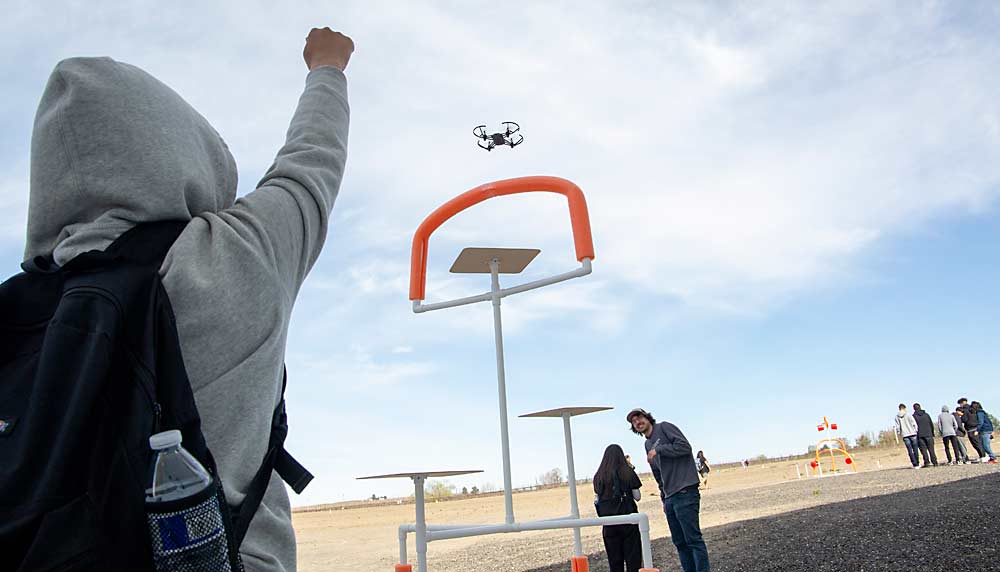
With a little giggling and some friendly trash talk, middle school students paired up to navigate unmanned aerial vehicles through obstacle courses at Washington State University’s Irrigated Agriculture Research and Extension Center in Prosser.
Most of the students come from families who work in agriculture, said Brett Carr, a Wapato Middle School science teacher who accompanied the kids. The field trips might expose the students to farming jobs they may not have imagined and encourage them to pursue high school technology classes they otherwise might not have.
“They didn’t know that was a job, that you could get paid to do this stuff,” he said.
That’s the goal, said Jordan Jobe, project manager for the AgAID Institute — a consortium of scientists at several universities working on ways to bring artificial intelligence technologies to agriculture. Led by WSU, the $20 million research effort focuses on improving intelligent technologies for labor, water and farm management.
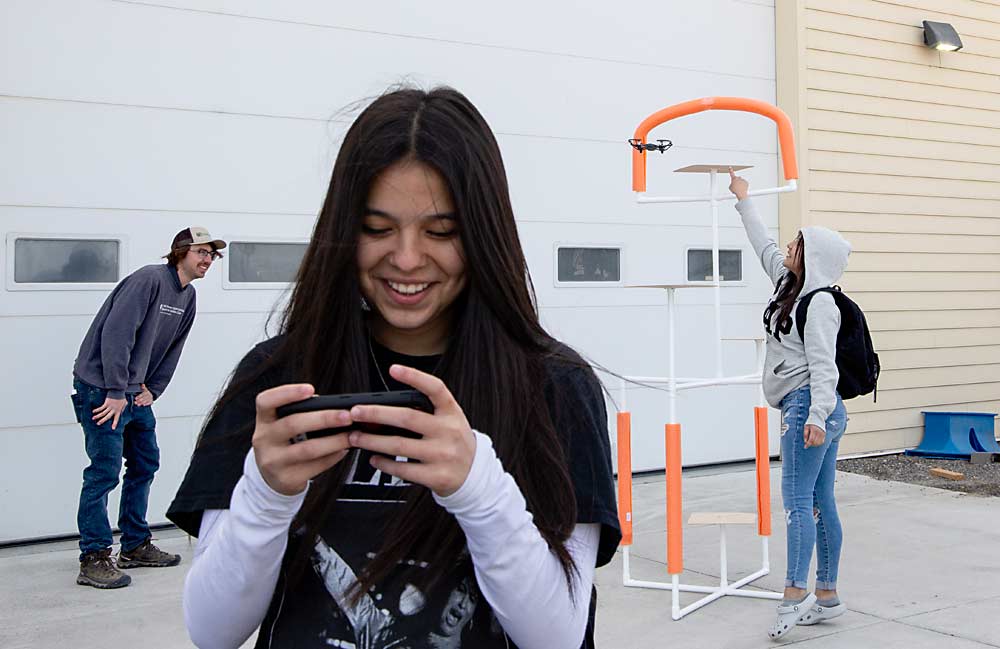
One of the goals of the AgAID Institute is to expose younger generations to agricultural technologies and, perhaps, inspire them to someday fly the drones, program the computers and operate the robots on specialty crop farms of the future.
“The overall goal of our efforts is to get students at their transition points” of their educational careers, Jobe said, and steer them toward science, technology, engineering and math, or STEM, classes.
The high-tech vision of farming surprised student Nathan Gutierrez.
“I really never expected drones to develop into agriculture,” he said. “I thought they were more used for combat and stuff, you know, stuff from the video games.”
In one of the activities, one partner stood with their back to the course while the other gave directions. Gutierrez’s partner, Federico Apodaca, noticed the wind posed a problem for the drones he tried to pilot through the course while Gutierrez gave him navigational instructions.
It was AgAID’s second year of the middle school trips, with attendees from Grandview and Wapato, two small cities in Washington’s Yakima Valley. Jobe hopes to double the number of students involved in the 2023–24 school year.
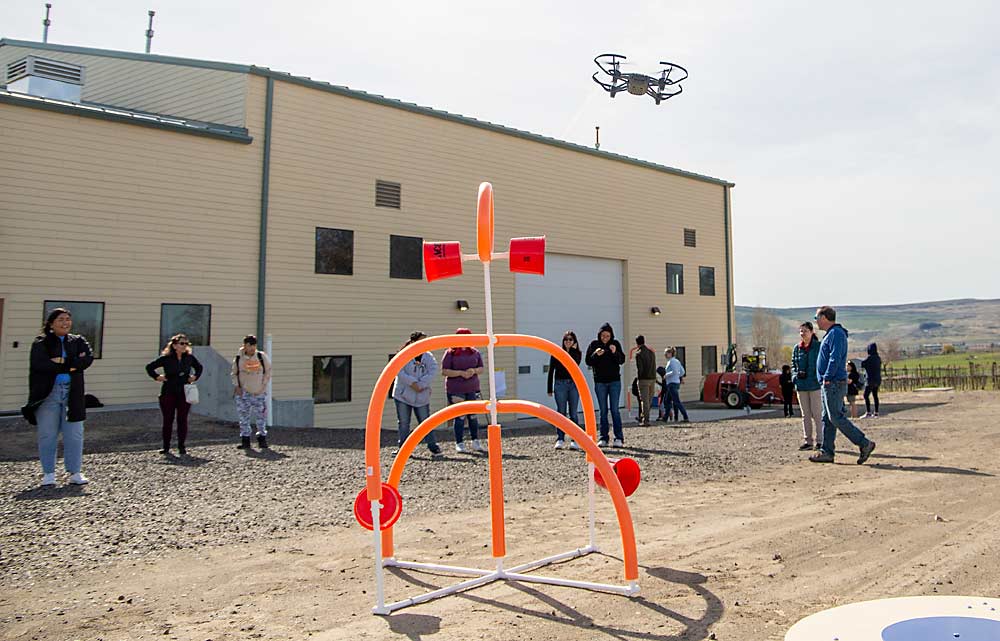
For college and trade school students, AgAID aims to first inventory the technical training programs already available in each region.
AgAID also has an internship program that places college students in summer positions at universities and one private business, innov8.ag, an ag data science startup. The institute placed 14 students last summer and 15 this summer.
One farm will host the interns on a summer retreat to help them understand where their projects fit into the overall tree fruit industry, Jobe said.
To reach high schoolers, she also attended FFA and ag science teacher conferences to discuss adding agricultural technology elements to the state’s science curriculum.
—by Ross Courtney

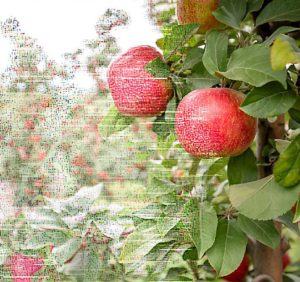
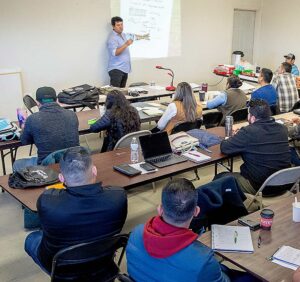





Leave A Comment